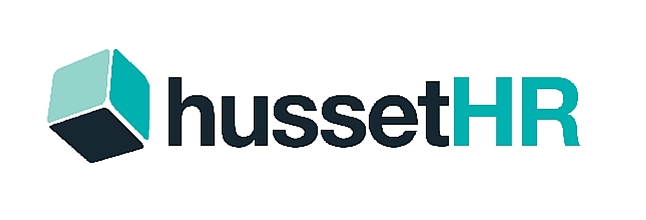Soft skills is a term given to non-technical skills that are highly related to a person’s work. These skills are required of employees to be successful in their employment. There are numerous soft skills that can be utilised in the work place and some examples are interpersonal communication, listening, time management and sensitivity or empathy with others. If a person naturally has this type of skill set it can make them far more successful than another person who only has technical skills. An employee representing all the qualities of soft skills will be also a great asset and works well in a team. Nearly all jobs require interactions with others whether its customers or just your team members so naturally having a wide variety of soft skills will certainly come in handy!
What are the different types of soft skills?
As discussed above there are many different types of soft skills. Below we have listed a few that we think make up great soft skill qualities in a person, however there are heaps more!
- Communication
- Teamwork
- Time Management
- Positivity
- Conflict Resolution and Problem solving
- Adaptability
- Dependability
- Creativity
Communication
There are three kinds of communication verbal, non-verbal and written. This can be how a person communicates to another person via person to person interaction, phone call or even email. A person having the ability to effectively communicate is a vital trait not only in work life but everyday life. It is a great asset if a person can read body language and respond well to social cues and social situations. Especially in current circumstances many people are working from home. If a person can efficiently communicate to their team, it will make the whole process of remote working a lot easier.
Teamwork
Teamwork stems from the person’s ability to work well with others. If a person has grown up doing team sporting activities or group work in school, it’s a great opportunity for them to learn how to work well with new people. Being able to adapt and work well in teams will help to utilise everybody’s knowledge to the greatest capacity helping to reach those kpis sooner.
Time management
Punctuality is a huge sign of professionalism in a person. It shows that they have respect for other people and understand the importance of another person’s time. It will make you stand out and show your team members that you are reliable and can be trusted. Time management could mean turning up to work early or on time or also having the ability to finish a project or work task before a deadline.
Positivity
Having a half glass full approach to your work won’t necessarily make you a better worker however it can change the way people view you. If a person is a positive member of the team it can rub off on everyone else. Positivity will help reduce overall team stress, and make others feel like they can contribute without being criticised. Co-workers will feel more excited about going to work, if the environment is optimistic and productive.
Conflict resolution and Problem solving
Conflict resolution ties in with effective communication skills. If an employee can avoid or resolve conflicts in the workplace, it will demonstrate how professional they handle heated situations. This trait will assist in the creation of a better overall safe workplace environment and corporate culture. Problem solving means a person can recognise what the issue is and effectively determine a way to fix it. This person will fix an issue in a timely manner without any impediments.
Adaptability
Being able to quickly adapt to job changes especially in current circumstances is a great quality in an employee. Since most of us have had to change and adapt our workplaces due to COVID-19 it will be clear which employees have great adaptability skills. In a fast-paced working environment there are rapid changes, if an employee can keep up with these fluctuations, they are an asset to your team.
Dependability
Dependability is important when you work in both a small and large team. If your management or other members can trust and rely on you, you may become the new workplace favourite 😉. In all seriousness, a person who you can depend on will get better job opportunity and chances for development through the workplace. You may be asked to do something out of your comfort zone but take the risk! This means your management and team can depend on you to perform a variety of jobs, making you even more hireable.
Creativity
Fresh new ideas are integral parts of all businesses. If an employee is a highly creative person, they will be able to find new ways of doing normal business processes. A creative workplace environment helps promote a more innovative overall business position. Creativity can align well with the other soft skill of problem solving. A creative person will be able to view issues in a different light, and find a suitable solution.
Why are Soft Skills Important?
So, you may still be asking yourself why soft skills are so important? But trust us there are plenty of reasons why you need to focus on finding these skills in your staff or job prospects.
- It will help create a better working team environment.
- A person with communication and teamwork skills will allow for effective delivery of information, helping prevent confusion or conflict.
- Someone who is personable can be a great manager! They have the natural ability to deal with conflict resolution.
- A team who can effectively communicate, work together and trust each other will create a better overall corporate culture.
- A person that can create relationships with new people easily, will excel when dealing with customers or clients.
- Creative thinkers and those that can listen to other people’s ideas can contribute to making a more innovative business.
- Soft skills will forever be a desired trait in a person as computers will never have the ability to stimulate human interaction!
How do you improve your soft skills?
Now if you are sitting here wondering how you can improve your own soft skills; we have those answers for you as well! Improving soft skills aren’t as hard as you think. Firstly, you need to identify the soft skills you do already have. You may have noticed you thrive when working in a team situation or you are a very empathetic person who has great listening skills when someone is upset. Find the soft skills you already have and think of some you aren’t so good at! Use the below ways to improve these skills for both work and everyday life.
- Online Course
There are many different online course options these days. You have everything you’ve ever wanted to learn at your keyboard! Whether you want to improve your negotiation skills, communication skills or learn how to effectively resolve conflict you will be able to find both an online course and websites that can show you how! This is a simple step, but you will have a long-term gain both in work-life and home-life.
- Practice with a friend of family member
Practicing teamwork, communication or any kind of soft skill with a family member is a great way to start. You will feel comfortable asking them for help and respond well to any kind of improvements they may have. All soft skills are useful in everyday life! Sit down with your loved ones and act out a situation at work that you may need to use any kind of soft skill, for example negotiation. The more you practise, the better you will get!
- Request feedback
Ask those around you at work or management for feedback on the kinds of soft skills you can improve on. They may have some easy tips and tricks to help you fix any faults.
How to Let Employers Know you have soft Skills?
So now that you have identified the soft skills you already have and improved on those ones you may not be so good at here Is how you let your employers know what soft skills you have.
- Find the soft skills you have that align well with the job you are hoping to get. For example, if you are hoping for a job in a retail store having communication, adaptability and can work in a team are skills that coordinate perfectly with this job.
- List your soft skills on your resume or LinkedIn page.
- In an interview describe the way you used your soft skill. For example, tell the interviewer or your employer how you used your conflict resolution skill to defuse an incident with a customer or another team member.
- As an interviewer provide a project outcome and have the candidate explain what their approach would be.
Soft skills are crucial for achieving results in your work life or business. All of these skills contribute to reaching key performance indicators, creating a better corporate culture and environment and dealing with any situation your work life may throw at you! Begin recognising and using soft skills to benefit your business and you’ll reap in all the benefits!

